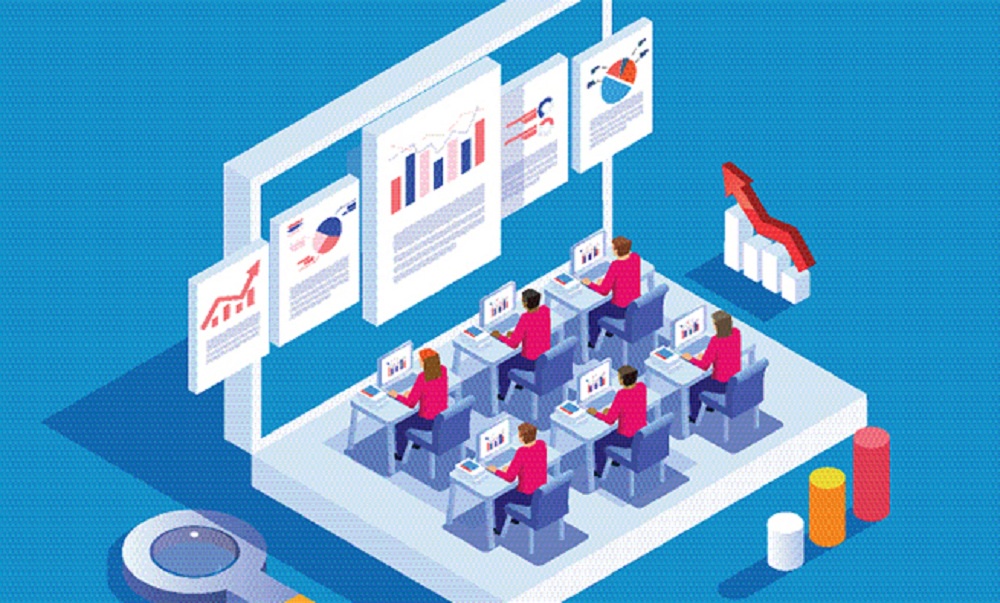The digital transformation of accounting was very much necessary because several management accounting career professionals are having a tough time to handle the day-to-day tasks.
According to a study by the IMA, one-third of accounting teams are spending anywhere from 51 percent to 75 percent of their time on repetitive, low-value tasks. Additionally, 56 percent of the surveyed professionals in accounting and financial management said they require automation just to keep up with their increasing workloads.
Digital Transformation may look new, but there are several firms globally already taking help from basic automated accounting processes. Accounting tasks and processes that machines can do or streamline will help the management accounting trends to speed up the works.
According to Forbes, supplier onboarding, accounts payable, audits, procurement, purchasing, expense management, close processing, and customer queries can be easily taken care by the new and emerging technologies.
The Digital Transformation Redefining the process of Accounting
Digital Transformation has taken the accounting to new and better levels. Whether an individual is a seasoned accounting and financial management professionals seeking to stay on the cutting edge of the industry or an aspiring beginner. One will want to understand the following technologies that are redefining in the accounting profession.
· Automation of Accounting Tasks
Labor and time-intensive facets of accounting — such as audits, tax preparation, banking, and payroll — are highly becoming fully automated. As the application of latest technologies to create self-learning systems continues to be integrated into accounting tasks, technological systems will take on the repetitive and time-consuming jobs, leaving the analytical and managerial tasks to humans. For instance, major software vendors, such as Intuit, Sage, OneUp, and Xero, offer automated data entry and reconciliation options via Artificial Intelligence (AI) and Machine Learning (ML) technologies in company bookkeeping — According to Forbes.
Another example is the use of Robotic Process Automation (RPA) to reduce processing times for audits and contracts down to weeks instead of months — According to the CPA Journal. As Forbes explains, larger firms using RPA AI integration has “increased efficiency and higher-level services,” when compared with smaller, non-AI competitors.
One of the essential advantages of leveraging digital transformation in many management accounting trends processes is actually the same as it is in other disciplines and industries: Automating low value, easily repeatable accounting tasks gives professionals in management accounting career more time to contribute to properly plan the things and work for firm’s growth.
· Cloud Computing
A significant technology trend is working in the cloud. The cloud computing technology offers instant access to resources, which include data and computing capabilities. An essential benefit of a cloud-based system is the continual updating of information, which allows accounting and financial management professionals and clients to analyze data and make decisions based on cutting-edge information. Additionally, according to the Journal of Accountancy, cloud-based technology can also ensure “constant monitoring, rather than intermittent analysis,” whenever information on the system is updated.
Cloud computing is experiencing rapid growth as new intelligent technologies — such as the Internet of Things (IoT), Artificial Intelligence (AI), and Machine Learning (ML) — are integrated into the cloud — According to Forbes. As these technologies become more commonplace, the future of accounting is looking decidedly cloud-based.
· Blockchain Technology
Another trend impacting the demand for professionals in management accounting career is the future is blockchain technology, a computer-based recording system that uses crypto currency within a user-to-user network. While blockchain may have gained popularity due to “Bitcoin” — a digital currency in which a record of transactions is maintained and new units of currency are generated, which are independent of a bank — the technology has progressed substantially. The attractiveness of blockchain for accounting lies in “the possibility of a new type of accounting ledger — one that can be continuously updated and verified without the threat of being altered or corrupted,” Accounting Today explains.
The blockchain technology ensures users to access ledgers in real time, as well as to create smart contracts and record transactions, it’s no surprise the system is catching the notice of accountants. In fact, many accounting and financial management companies have already implemented blockchain, including the Big Four — EY, PwC, Deloitte, and KPMG — According to Accounting Today.


No comments yet